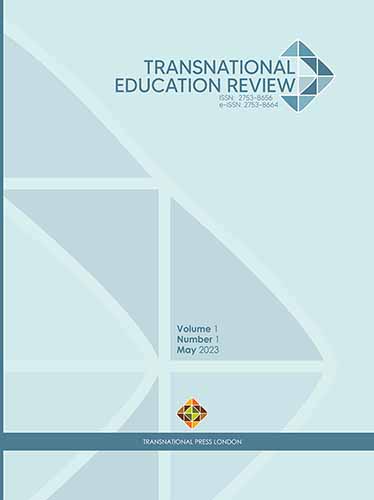Education in Exile: An Indian Experience
Education in Exile: An Indian Experience
Author(s): Madhusmita JenaSubject(s): Education, Politics and society, Migration Studies, Asylum, Refugees, Migration as Policy-fields
Published by: Transnational Press London
Keywords: Non-entre` regime; the 1951 UN Convention; the 1967 Protocol; Cuban-Haitian Syndrome; Government of India assisted refugees; UNHCR mandate refugees; Discrimination; Delegation; Right to Education;
Summary/Abstract: The modern global refugee regime has evolved, by and large, into a “non-entre`e regime”- a large number of states have, during the closing years of the twentieth century and the beginning of the twenty-first century resorted to policies of restrictionism, blatantly blocking the entry of refugees and asylum-seekers into their sovereign territory. Contrary to this restrictive and extraterritorial control adopted by most states that are parties to the 1951 UN Convention on Refugees and its 1967 Protocol, India has had a long tradition of hosting refugees/asylum-seekers who had been persecuted in their home states, where their life and living had become almost impossible for sheer survival. This is despite the fact that India continues to remain a non-signatory state to the Refugee Convention, nor does it have a scripted refugee protection legal framework. Refugees and asylum-seekers from several of its neighbouring states have had preferred India as a safe haven in consideration of a host of enabling conditions. India has hosted, over the years refugees and asylum seekers from Pakistan (East and West combined), broadly known as Partition refugees, Tibetan refugees from China-annexed Tibet, refugees/illegal immigrants from Bangladesh and Sri Lanka. This aside, India has offered refuge to asylum seekers from states like Afghanistan, Burma now Myanmar, Iraq, Iran, Somalia and Sudan. Two sets of players offering refuge to asylum seekers are: Government of India and the United Nations High Commissioner for Refugees (UNHCR), the United Nation’s principal refugee agency. As the perceptive analysis attempted in this paper, response patterns by both the agencies have widely varied, across refugee groups and within-state variations. Simply stated, the varying responses of GOI and UNHCR are characterised by “discrimination and delegation”. This act of discrimination and delegation could be largely attributed to India’s relations with the refugee-sending states, and India’s strategic stand to be absolved of diplomatic and political estrangements. Keeping this in view, India has delegated the responsibility of assistance and protection of asylum-seekers from the latter group of states to the UNHCR, considered as the “specialised institution” and “guardian” of refugees for providing assistance and protection to refugees. Provision of education, in terms of access and quality constitutes a “crucial” factor in offering the refugees a much-needed autonomy and development, which is considered as their “core” right in exile. In a large measure, UNHCR’s operational wavelength remains bound by India’s strategic interventions. This paper attempts to explore and examine the initiatives taken by both India and UNHCR in the overall framework of discrimination and delegation in a comparative perspective.
Journal: Transnational Education Review
- Issue Year: 1/2023
- Issue No: 1
- Page Range: 43-54
- Page Count: 12
- Language: English

